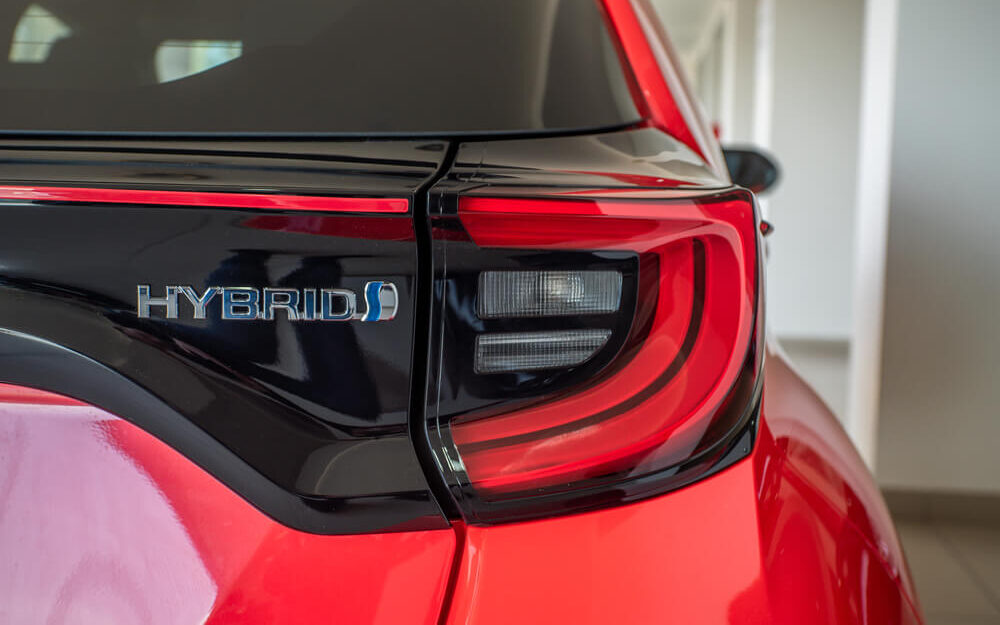This isn’t a pleasant market to trade.
After enjoying an epic two-month rally, the S&P turned lower in mid-August and is closing in on lows for the year.
While the macro environment looks terrible, the electric vehicle (EV) mega trend will continue to expand.
EV demand was already growing at a fast clip long before 2022. These innovative autos were almost nonexistent a little over a decade ago. They were out there, but no one called them “trendy.”
Today, electric and hybrid vehicles make up a combined 13% of all cars and trucks sold in America.
High fuel prices have a way of spurring consumers into cheaper alternatives. And this was before the Inflation Reduction Act (IRA) made every qualifying vehicle $7,500 cheaper due to the tax credits.
About that…
EVs Steal the Spotlight — but Here’s the Real Star
Most of the attention has been on pure EVs.
I even recommended a play on this trend in our premium stock research service Green Zone Fortunes last month. My high convictions lie with one of the world’s largest lithium miners. (If you want to see how to access that recommendation, click here.)
The future is electric. It’s all but inevitable, and the Inflation Reduction Act is a trend accelerator.
But here’s the thing.
While EVs are the future, there are some practical impediments to them in the present.
At the top of that list is supply. We don’t have large enough stores of lithium and other vital commodities to make the transition overnight.
We also lack the charging infrastructure … although that’s getting built in a hurry.
As a practical matter, we’re going to rely on gasoline for the foreseeable future. And all of this creates an interesting opportunity for hybrid automakers.
The headlines surrounding the IRA focused heavily on that $7,500 tax break for EVs. But what most people miss is that many hybrids also qualify.
Most hybrid vehicles have a smaller battery that gives you a driving range of 30 to 40 miles. That’s paired with a traditional gasoline engine to bail you out when the battery gets low.
If you live outside of a major metropolitan area or take frequent road trips, a hybrid is a more practical option than a pure electric vehicle while companies continue to build out EV infrastructure. You can still use traditional gas stations when charging stations aren’t available.
There’s also the cost factor…
Hybrids aren’t “cheap.” In an era of 8% inflation, nothing is.
But they tend to be a lot cheaper than pure EVs.
As a simple comparison, a base model Toyota Prius starts at $25,000. The cheapest base model Tesla is almost twice as expensive.
That’s a problem for EVs. In order to qualify for the tax break, a sedan has to be priced at under $55,000, and a truck or SUV can’t cost more than $80,000.
Hybrids were already cheaper than pure electrics. Now, with rebates, they will be cheaper than a lot of traditional gasoline-powered cars too. And this says nothing of the ongoing cost savings of better fuel efficiency.
Who stands to benefit here?
Us as investors!
2 Ways to Play the Hybrid Cars IRA Boost
It’s a little complicated because in order to qualify for the tax credit, the manufacturers have to source a certain amount of battery components in the United States.
But as things stand now, the two leaders in hybrids are Japanese automakers Toyota Motor Corporation (NYSE: TM) and Honda Motor Co. (NYSE: HMC).
Toyota stock rates a “Neutral” 58 on my Stock Power Ratings system, but it carries a solid 89 on value and a 74 on volatility.
It’s a cheap stock that moves a lot less than the broader market. That’s not such a bad thing in a year like 2022!
Honda stock rates a “Bullish” 64.
HMC rates higher than Toyota on three factors and is pretty much in line with a fourth:
- Value: HMC at 99 versus TM at 89.
- Quality: HMC at 72 versus TM at 56.
- Momentum: HMC at 61 versus TM 41.
- Size: 11 for TM versus 10 for HMC.
Bottom line: If you want to play a coming bull market in hybrid cars, my Stock Power Ratings say Honda might be your best bet.
To good profits,
Adam O’Dell
Chief Investment Strategist
